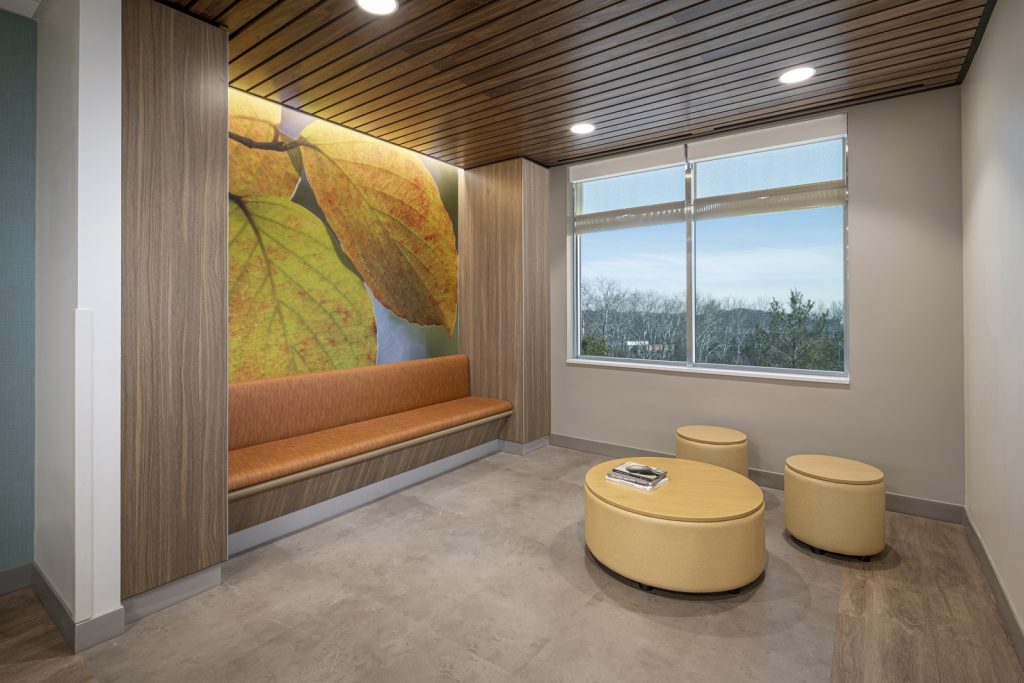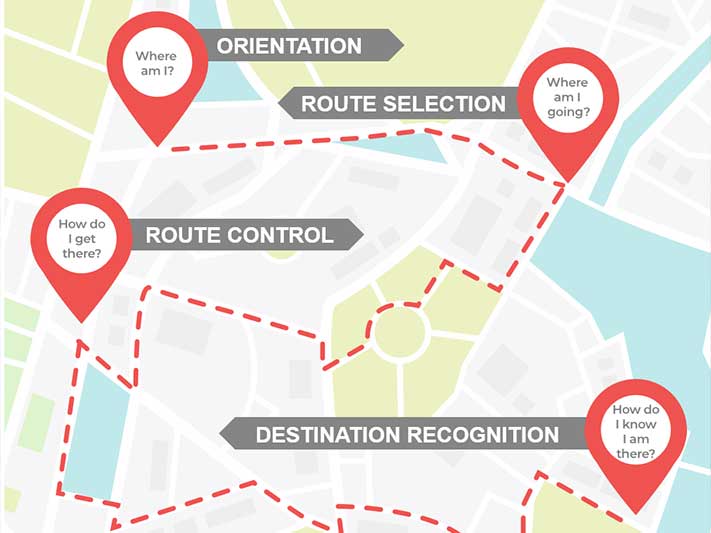Trauma Informed Design for Behavioral Health
Meredith Banasiak, EDAC
Trauma-informed Design recognizes the role the environment plays in supporting trauma-informed care. According to SAMHSA, “the context in which trauma is addressed or treated contributes to the outcomes for the people receiving services.”* To support trauma-informed care and recovery, Boulder Associates embraces a Trauma-informed Design approach where the care environment is designed to reduce stress for patients, staff, patient companions, and caregivers.
Check out the Inclusive Designers Podcast 3-part series with Boulder Associates’ Director of Research Meredith Banasiak as they explore how we embrace Trauma-informed Design for behavioral health projects, from family clinics to units treating persons with eating disorders.

Inpatient Dining, Boulder Community Hospital Della Cava Family Medical Pavilion | Image Credit: Caleb Tkach, AIAP
*Substance Abuse and Mental Health Services Administration. SAMHSA’s Concept of Trauma and Guidance for a Trauma-Informed Approach (HHS Publication No. SMA 14-4884). Rockville, MD: Substance Abuse and Mental Health Services Administration; 2014. U.S. Dept. of Health and Human Services. Substance Abuse and Mental Health Administration (SAMHSA)








